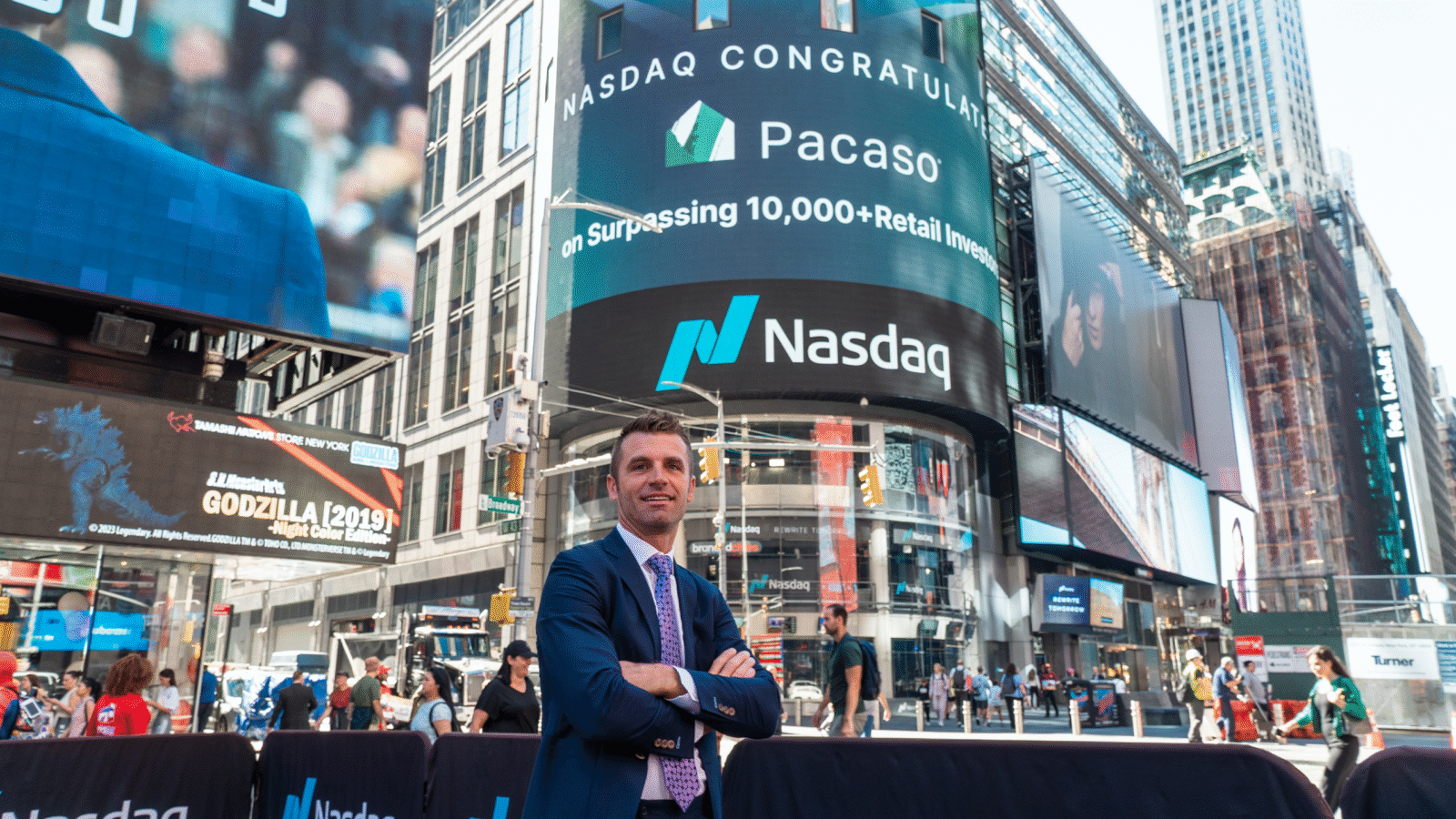Good morning.
The Murdochs finally resolved their heated family feud on Monday, but investors gave the patriarch’s designated successor a somewhat chilly reception, with shares in Fox Corp. and News Corp. reeling a day later. Family patriarch Rupert and his eldest son, Lachlan, had sought to amend a family trust to give Lachlan sole control of the two media companies his father built, but three other children — James Murdoch, Elisabeth Murdoch and Prudence MacLeod — objected in court.
The dissenters agreed to bow out of the trust and sell their personal holdings in Fox and News Corp., netting each about $1.1 billion. But Fox shares fell 6.6% and News Corp. shares 4.5% on Tuesday as the sheer size of the secondary offering required to cut James, Elisabeth and Prudence out of the family business — 16.9 million shares of Fox and about 14.2 million shares of News Corp. — appeared to undercut the value of shares by flooding the market. Nevertheless, they should recover — Fox shares are still up 15% this year and News Corp. 6.6% — meaning maybe the family will exchange Christmas cards instead of notices of discovery.
Dismal Jobs Numbers May Not Mean What You Think

First, the gloomy news: A jobs-data revision yesterday from the US Labor Department showed that 911,000 fewer positions were added in the 12 months through March than previously estimated. That’s a bigger dip than even most pessimists had predicted, triggering fears of a recession.
But what if the revision is the final clue revealing the US economy has already been in recession for a couple of years, and that we may be in a recovery? That’s not some wild Reddit conspiracy. It’s the theory posited in a splashy new research note from Morgan Stanley.
Rolling With the Punches
Let’s flashback to 2022. In late July, the US Bureau of Economic Analysis reported that the US economy contracted 0.9% in the second quarter of the year, following a 1.6% contraction in the first quarter. It triggered widespread questioning over whether the US economy had tipped into recession territory. After all, every period of two consecutive quarters of negative growth has coincided with a recession in the US since 1948. But the National Bureau of Economic Research (NBER), the official arbiter of the recession question, never declared one. US GDP returned to growth by the third quarter (and the bureau later revised Q2 numbers to show a small amount of growth as well), and the recession narrative gave way to debate about stamping out inflation without triggering a recession.
But a team of Morgan Stanley analysts led by chief US equity strategist and CIO Mike Wilson says the first recorders of history got it wrong. The reason few noticed, they posit, is that the US has been in a “rolling recession,” with different sectors passing through periods of contraction at their own pace. The downturn was also obscured by strong post-COVID consumer spending as well as “over-hiring for the past few years” in the public sector, “somewhat masking” underlying weakness in the private sector.
The good news? There may be signs that the “rolling recession” is coming to an end — and more rocking times are soon to come (not for nothing are we called The Daily Upside):
- “We’re not of the view that a rapid/acute rise in the unemployment rate and/or significantly negative payroll numbers are coming,” the analysts wrote, noting that some signals point to “Liberation Day” in April marking the rock bottom of the jobs market, with a recent upward revision to jobs data in July showing that a rebound may be underway, barring “another shock to the economy.”
- The analysts also pointed to median Russell 3000 companies returning to earnings growth this summer, after a sojourn in the wilderness since 2021, as a sign of recovery, as well as a so-called V-shaped recovery to earnings share breadth in the S&P 500.
Fed Up: Recession or not, Tuesday’s jobs revision has traders now all but certain of a quarter-point rate cut by the Federal Reserve during its meeting next week, likely followed by at least one more quarter-point cut later this year, according to CME Group’s FedWatch tool.
Big Investors Bet on This “Unlisted” Stock

When the former Zillow exec who sold his last company for $120m starts a new venture, people notice. That’s why the same investors that backed Uber, Venmo and eBay also backed Pacaso.
Disrupting the real estate industry once again, Pacaso’s streamlined platform offers co-ownership of premier properties, revamping the $1.3t vacation home market.
And it works. By handing keys to 2,000+ happy homeowners, Pacaso has already made $110m+ in gross profits in less than 5 years. They even recently reserved the Nasdaq ticker PCSO.
And you can become a Pacaso shareholder before the investment opportunity ends September 18.*
A Culling Looms for China’s Crowded EV Industry
Sparks are flying in Munich, where, at the city’s annual auto show this week, BYD’s executive vice president predicted that just a handful of Chinese EV-makers will survive long term. The exec, Stella Li, said even 20 EV manufacturers is “too much” and many will be “pushed out.” There are currently about 130 Chinese EV companies.
Li’s prediction is in line with an estimate from consulting firm AlixPartners, which said 15 Chinese EV brands will be viable financially by 2030. BYD rival Xpeng said in 2023 that just 10 would survive the next five to 10 years.
Euro Summer for Chinese EVs
More than a dozen Chinese EV-makers showcased their latest electric models this week at the Munich Auto Show, where EU brands dominate the showroom floor. As competition revs up back home, Chinese EV-makers are expanding their presence abroad:
- The country’s EV brands have been racing to the bottom in aggressive domestic price wars that Beijing officials have criticized for contributing to nationwide deflation. Price-slashing has also hit companies’ earnings as they take on debt to stay competitive on the lot. As a domestic shakeout looms, Chinese companies are looking abroad, where prices are higher.
- BYD has more than doubled the number of models it sells in the EU over the past two years and plans to have more than 1,000 EU stores running in 32 countries by the end of this year, Li said at the show. The world’s leading EV-seller plans to make all its EVs locally for EU markets within three years, helping it avoid tariffs. Changan, a government-owned EV brand, also announced its UK launch at the Munich Auto Show.
Heavy Traffic: Chinese brands merging onto the global highway could push other EV-makers off the road. Volkswagen showed off a new budget EV at the Munich Auto Show to compete with Chinese sellers’ rock-bottom prices — the ID.polo, aka the “people’s car,” is expected to cost less than $30,000. Other brands, like BMW and Mercedes-Benz, are counting on customers to keep paying more for better performance. Chinese companies may need customers to pay more soon, too: Citi cut its forecast for BYD’s sales next year by more than a million cars.
How Would You Like To Save $50K In Taxes This Year? High earners routinely overpay taxes by tens of thousands annually. The culprit? Fragmented approaches that leave out proven strategies like “backdoor” Roth conversions and tax-loss harvesting to offset investment gains. Range combines tax optimization and investment management for $300K+ earners who need effective wealth-planning strategies. Book your complimentary demo now.
The Dutch Connection: French AI Leader Gets Backing from European Tech Giant ASML
French AI leader Mistral isn’t settling for being le grand fromage at home. It aims to be the best on earth. That means developing AI models and data centers that can go toe to toe with the best the US and Asia have on offer.
On Tuesday, the company received key backing from a continental ally. Dutch semiconductor equipment giant ASML opened its wallet — or portemonnee, a word borrowed from the French porte-monnaie — to become Mistral’s largest shareholder.
Which Way the Mistral Blows
Paris-based Mistral is a relative newbie in the AI world, founded just two years ago; by comparison, OpenAI, at 10 years old, is practically ready for senior citizen discounts. The maker of the chatbot Le Chat has been hailed by policymakers, including French President Emmanuel Macron, as key to Europe’s ambitions of building its own tech bulwark to fend off dominant US and Asian competition. Named after a famously strong wind in southern France, Mistral is also building data centers to establish European competition against major US cloud providers like Amazon Web Services and Microsoft Azure, making it a strategic bet on two fronts.
Enter ASML, one of Europe’s undisputed tech giants. Its $1.5 billion, 11% stake in the French startup announced Tuesday is a breakthrough moment in continental synergy. The fresh cash fuels Mistral’s efforts to develop new models and data centers, and ASML could hardly be a better-positioned partner. The Dutch giant has a de facto monopoly on the extreme ultraviolet (EUV) lithography machines essential to making advanced semiconductors. This has placed it at the heart of the global AI boom, furthering its lucrative symbiotic relationship with chip giants like Nvidia. On Tuesday, its $316 billion market cap made it the most valuable company in the European Union, which is something Mistral can look up to:
- ASML’s stake, part of a total $2 billion round, values the French company at roughly $14 billion. That number underscores how far Mistral trails its AI competition in Silicon Valley: Anthropic closed a $13 billion funding round with a $183 billion valuation last week, while OpenAI is planning a secondary sale at a $500 billion valuation.
- Mistral has another unique backer in Macron, who has encouraged blue chip firms to do business with Mistral and positioned the company as a key beneficiary of a €109 billion ($127 billion) national AI plan. France’s state-owned investment bank Bpifrance is also among its backers, though Mistral has no shortage of prominent international investors, among them Lightspeed Ventures, former Google CEO Eric Schmidt, Andreessen Horowitz, Nvidia and Microsoft.
Double Dutch: And speaking of European companies with Microsoft ties, the US tech giant reached across the Atlantic on Monday to do business with another Netherlands-based tech firm. Nebius is a new arrival to Amsterdam, having split from Russia’s Google-equivalent Yandex last year. It ditched the search engine business of its former Russian parent to focus on AI infrastructure and computing capacity, something Microsoft has a growing need for as it builds out new products. Nebius will make at least $17.4 billion, and up to $19.4 billion, for providing Microsoft with dedicated AI computing capacity from a new data center being built not in picturesque Amsterdam or elegant Paris, but the land of gardens itself … New Jersey.
Extra Upside
- Chips and Cookies: Nvidia plans to launch a new chip to power complex AI functions like creating videos and software by the end of 2026; while you’re waiting, the Girl Scouts plan to introduce a new cookie in January.
- Cold Shoulder: Ben & Jerry’s cofounders are pressuring Unilever to keep the brand out of a planned spinoff of its ice cream operations, and are instead asking that the socially progressive creamery be made an “independent business” again.
- Temporary Tariffs? The Supreme Court agrees to hear the White House’s appeal in tariffs case on an expedited basis, after a lower court ruled the administration’s tariffs exceeded presidential authority.
Just For Fun
Disclaimer
*This is a paid advertisement for Pacaso’s Regulation A offering. Please read the offering circular at invest.pacaso.com. Reserving the ticker symbol is not a guarantee that the company will go public.
Listing on the Nasdaq is subject to approvals.

